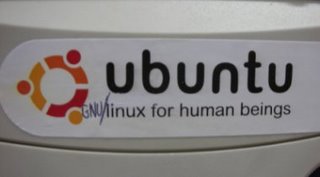According to Stephen Shankland at CNET,
ATI has responded to Intel's move of
releasing their graphics drivers as free software. ATI makes graphics chip sets and driver software to be installed in commoners' computers. The company statement starts out horribly as ATI promotes their archaic and oppressive business model by emphasizing the "value" of proprietary, patented software technology
.
"Proprietary, patented optimizations are part of the value we provide to our customers and we have no plans to release these drivers to open source,"
The stinger against
free culture comes when ATI claims,
"[...]multimedia elements such as content protection must not, by their very nature, be allowed to go open source."
The above statement is almost too absurd to be believable. With the growth and attention the free software/culture movements have been receiving the last few years, it makes one wonder why ATI would make such a public statement. Such RIAA/MPAA-like rhetoric is only going to alienate the company from conscientious consumers.
Perhaps this is wishful thinking, but
AMD is lined up to purchase ATI. The merger is expected by the end of Q4 of this year. AMD has had a strong partnership in the past with IBM and the
LinuxBIOS project so AMD is no stranger to freedom. Could it be that AMD/ATI have purposefully set ATI up as a short-term "enemy" of free culture with the intent of having this position gloriously reversed by AMD once the acquisition goes through? If this were the case, AMD would look good and do good in one swoop. Such an act would garner a lot of support from those looking to buy hardware that competes with Intel for freedom at the graphics chipset level. If this is all a part of a visionary plan, it's one great big hack.
I'm no insider though the optimist in me couldn't resist contemplating the above scenario. It might be Intel versus AMD in the race to make the best graphics hardware driven by free software whilst
nVidia eats dust or is forced to play in a market of freedom. Let's see what transpires.





